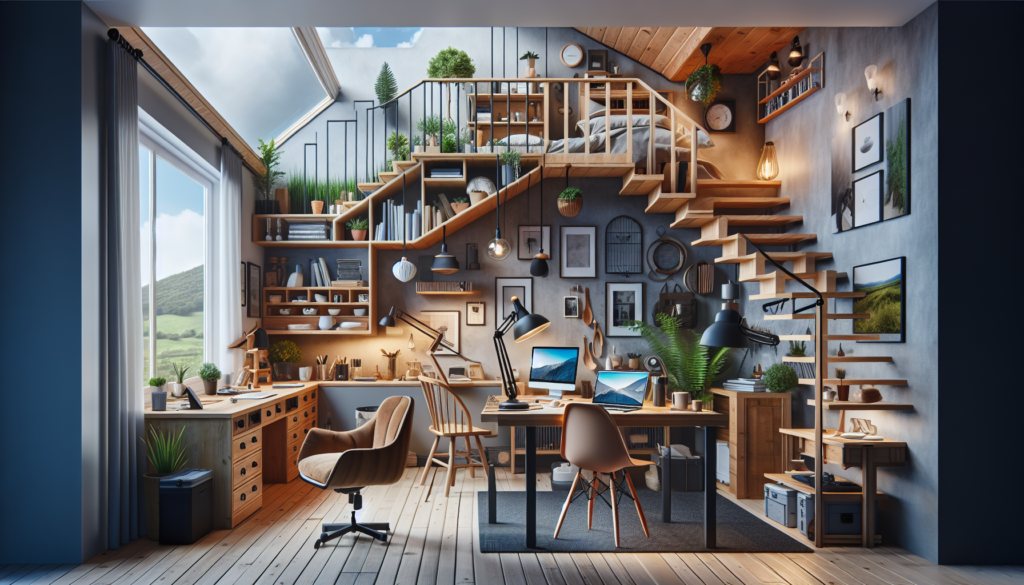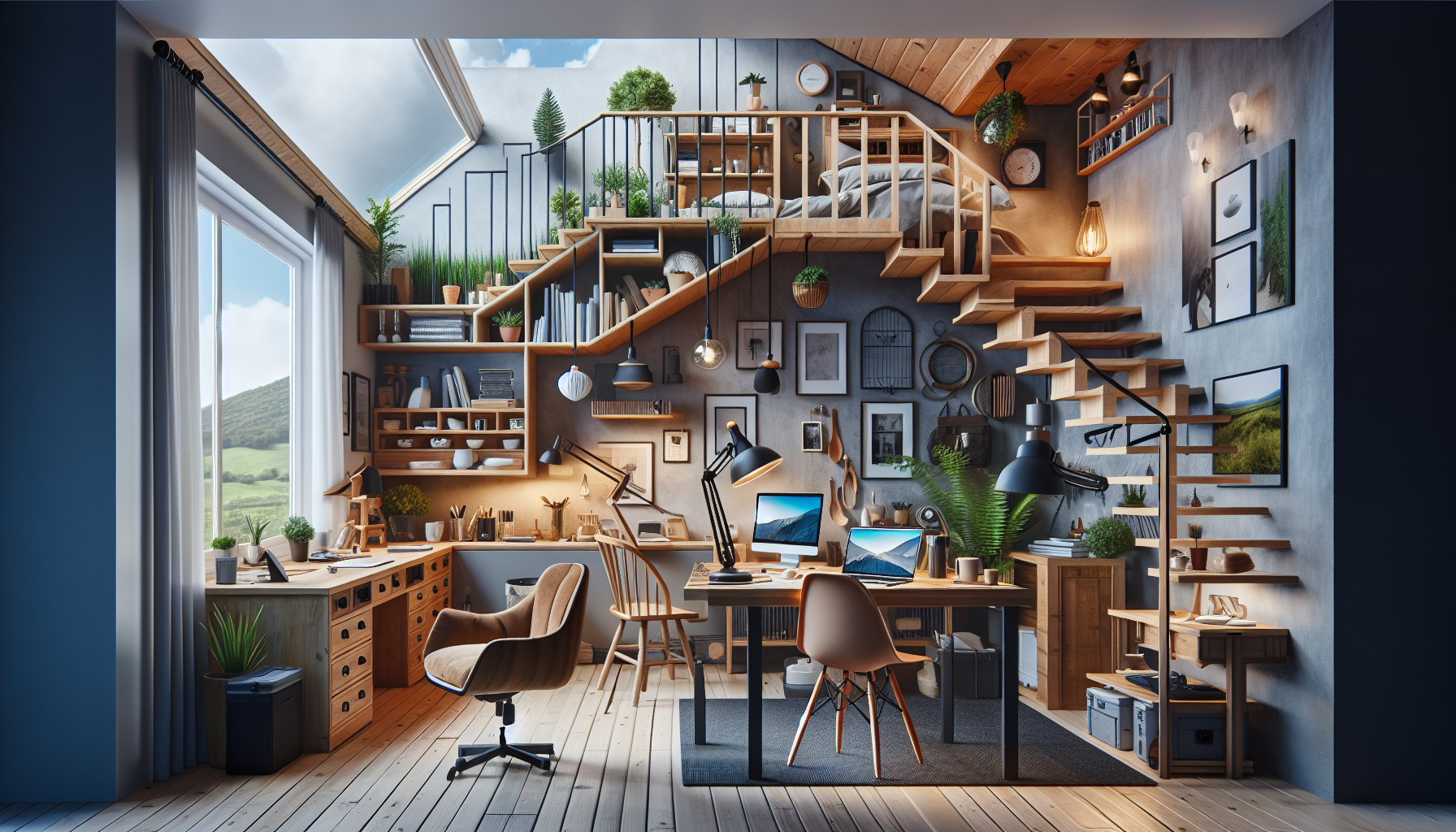Imagine having the flexibility to work from the comfort of your very own home. The beauty of modern technology allows us to transform any available space into a productive haven. But what exactly constitutes a home office? Explore this question as we delve into the various aspects that define a space perfect for professional pursuits within the confines of your personal sanctuary. Whether it’s a cozy nook in the corner of your living room or a dedicated room solely for work, discover what can be considered a home office and unlock the potential of working from home in style and comfort.

Defining a Home Office
Having a designated space in your home for work can help increase productivity, minimize distractions, and create a sense of professionalism. But what exactly constitutes a home office? A home office is a space in your home that is specifically designated for work-related activities. It should be separate from your living areas and have the necessary functional elements to support your work needs.
Designating a Space
The first step in creating a home office is to designate a specific area in your home that will be solely dedicated to work. This space should be separate from your living areas to help create a clear boundary between work and personal life. It could be a spare room, a corner of your bedroom, or even a separate building if you have the space. The key is to have a space that is solely dedicated to work to help maintain focus and productivity.
Separation from Living Areas
Separating your home office from your living areas is essential to create a clear divide between your work life and personal life. This separation helps in minimizing distractions and allows you to have a dedicated space where you can focus on work without interruptions. Whether it’s through physical barriers like doors or partitions, or simply positioning your workspace away from high-traffic areas, creating a sense of separation is crucial for maintaining a productive work environment.
Functional Elements of a Home Office
To make your home office a functional and efficient workspace, it’s important to consider the following elements:
Desk and Chair
Invest in a good quality desk and chair that provide comfort and support while working. Your desk should be spacious enough to accommodate your work essentials such as a computer, paperwork, and any other necessary equipment. Equally important is an ergonomic chair that supports proper posture and reduces the risk of back pain or discomfort.
Storage Solutions
Efficient storage solutions are vital for keeping your home office organized and clutter-free. Consider incorporating shelves, cabinets, or filing systems to store documents, office supplies, and other work-related materials. A well-organized workspace not only improves productivity but also creates a visually appealing and professional environment.
Lighting
Proper lighting is crucial to reduce eye strain and maintain focus. Natural light is ideal, but if that’s not possible, invest in good quality artificial lighting. Consider a combination of ambient, task, and accent lighting to create a well-lit and comfortable workspace. Adjustable lighting options allow you to customize the lighting levels based on your specific tasks and preferences.
Technology and Connectivity
In today’s digital age, technology and connectivity are essential for a functional home office. Ensure that you have reliable internet access, a computer or laptop, and any other necessary devices such as a printer or scanner. Additionally, invest in cable management solutions to keep cords and cables organized and prevent tangling or tripping hazards.
Productivity and Organization
Maximizing productivity and maintaining organization are crucial for a successful home office setup. Here are some tips to help you achieve this:
Creating a Distraction-Free Environment
Minimizing distractions is essential for maintaining focus and productivity. Identify and eliminate any potential distractions in your home office, such as noisy appliances or distracting decor. Consider using noise-canceling headphones or background noise machines to create a quiet and focused atmosphere.
Organizing Workspace
A clutter-free workspace is essential for staying organized and efficient. Regularly declutter and organize your desk and storage areas to ensure easy access to essential items. Utilize organization tools such as desk organizers, file folders, and labels to categorize and store your work materials effectively.
Setting Clear Boundaries
Setting clear boundaries between your work and personal life is crucial for maintaining a healthy work-life balance. Establish specific working hours and communicate them to family members or roommates to avoid interruptions during work time. Additionally, create a routine that separates your work activities from your personal activities to maintain focus and productivity.
Ergonomics and Comfort
Creating a comfortable and ergonomically sound home office environment is essential for your physical health and overall well-being. Consider the following elements:
Ergonomic Furniture
Investing in ergonomic furniture such as an adjustable desk and chair can significantly improve your comfort and reduce the risk of musculoskeletal disorders. Ensure that your desk and chair allow for proper alignment of your body, with your feet flat on the floor, knees at a 90-degree angle, and your computer screen at eye level.
Proper Posture and Body Support
Maintaining proper posture while working is crucial for preventing physical discomfort and injury. Sit up straight with your back supported by the chair and avoid slouching or hunching forward. Consider using lumbar support cushions or footrests to further enhance your posture and reduce strain on your body.
Comfortable Temperature and Ventilation
Maintaining a comfortable temperature and good ventilation in your home office is essential for your overall comfort and productivity. Ensure that your workspace is adequately heated or cooled to the desired temperature and that there is proper air circulation. Consider using fans or air purifiers to improve air quality and reduce the risk of stuffiness or discomfort.
Aesthetic Considerations
While functionality is important, don’t overlook the aesthetic aspects of your home office. Creating a visually appealing and inspiring workspace can boost motivation and creativity. Consider the following factors:
Color Scheme and Décor
Choose a color scheme that promotes a calm and focused atmosphere. Neutral colors like white, beige, or light gray can create a sense of serenity, while pops of color can add visual interest and energy. Additionally, incorporate decor elements such as artwork, plants, or inspirational quotes to personalize your workspace and make it feel inviting.
Personal Touches and Motivational Elements
Adding personal touches to your home office can create a sense of comfort and familiarity. Display pictures of loved ones, incorporate meaningful objects or mementos, and include motivational elements like vision boards or inspiring quotes. These personal touches can help create a positive and uplifting work environment.
Legal and Tax Implications
Before setting up a home office, be aware of any legal or tax implications that may arise. Consider the following factors:
Zoning and Permits
Check your local zoning regulations to ensure that operating a home office is allowed in your residential area. Some neighborhoods or homeowner associations may have restrictions on the use of home offices. Additionally, research any permits or licenses that may be required to legally operate a home-based business.
Home Office Tax Deductions
If you use your home office exclusively for your business or work, you may be eligible for certain tax deductions. Consult with a tax professional or research the specific regulations in your country to understand the deductions you may be entitled to. Keep detailed records of your home office expenses and consult with a professional to ensure compliance with tax laws.
In conclusion, creating a well-designed and functional home office is essential for maintaining productivity, organization, and overall well-being. By considering the designated space, functional elements, productivity tips, ergonomics, aesthetics, and legal implications, you can create a home office that supports your work needs and enhances your working experience. Remember, a dedicated home office is not just a physical space, but also a mindset that allows you to separate and balance your work and personal life effectively. So, take the time to create a home office that reflects your style, supports your work goals, and provides a welcoming and inspiring environment. Now, go ahead and design your perfect home office!
